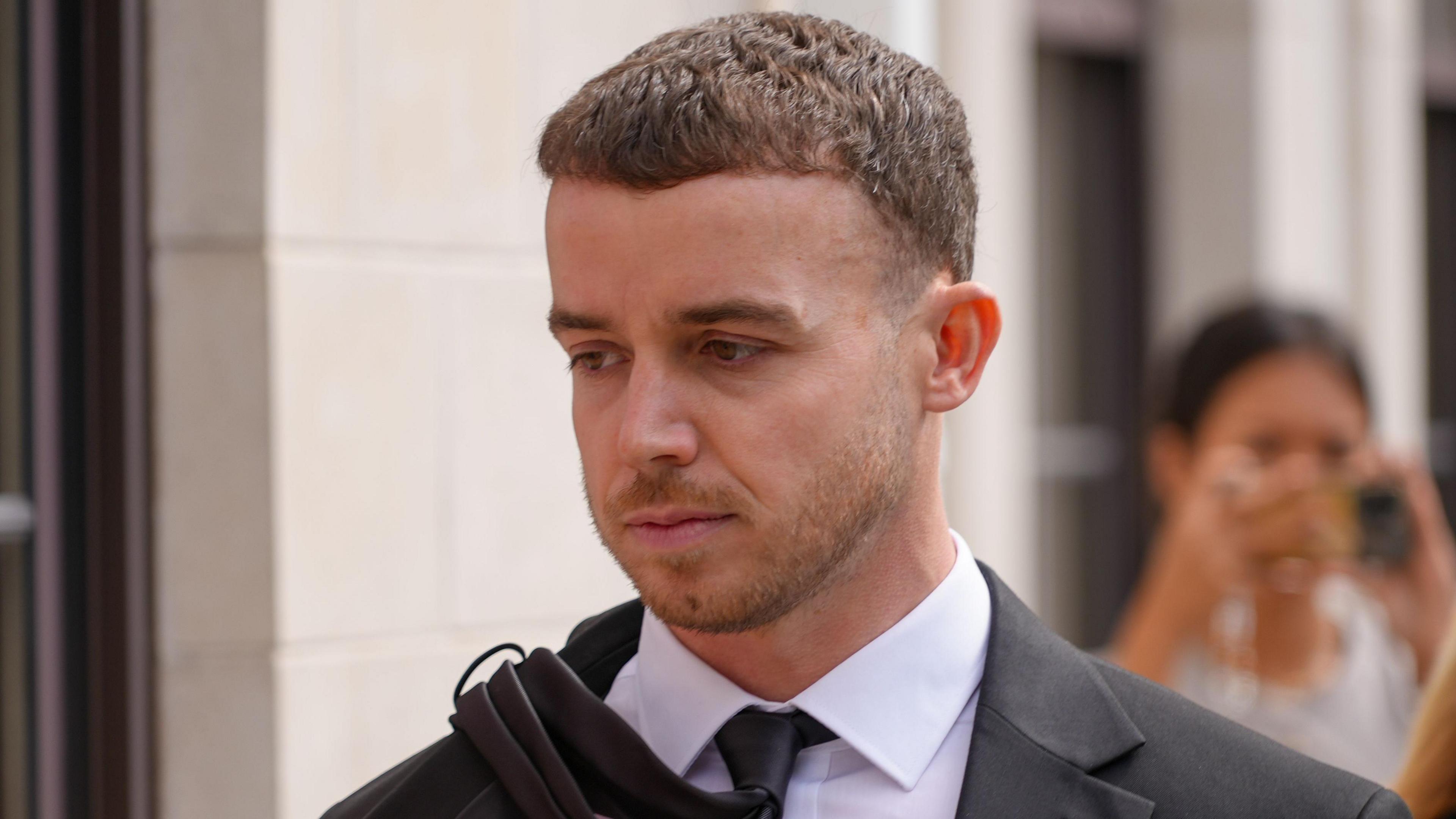'Safety was not paramount' for crash ferry crew
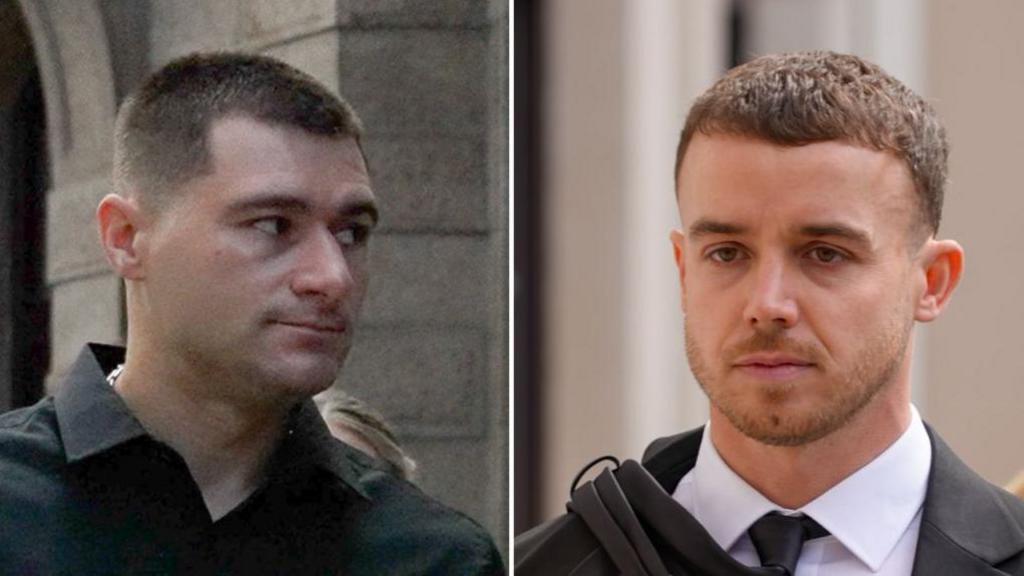
Artur Sevash-Zade and Lewis Carr both deny three counts of gross negligence manslaughter
- Published
Basic safety actions "fell by the wayside" before a fatal collision involving a ferry and fishing trawler, prosecutors have said.
At Jersey's Royal Court on Friday, crown advocate Matthew Maletroit said former Condor Ferries crew members Lewis Carr and Artur Sevash-Zade failed to make safety the "paramount consideration" before the Commodore Goodwill collided with L'Ecume II.
Mr Carr, 30, and Mr Sevash-Zade, 35, both deny three counts of gross negligence manslaughter over the collision between the vessels on 8 December 2022.
The incident led to the deaths of L'Ecume II's skipper, Michael Michieli and crew members Larry Simyunn and Jervis Baligat. The trial continues.
Summing up the prosecution's case, Mr Maletroit said the defendants could have no excuses as conditions on the sea at the time of the incident were good and both accepted they had sighted L'Ecume II at long range by her lights well in advance of the incident.
"L'Ecume II was there to be seen and avoided," Mr Maletroit said.
"Although it was dark at that time in the morning, she was well lit up and her lights could be seen from a long way away."
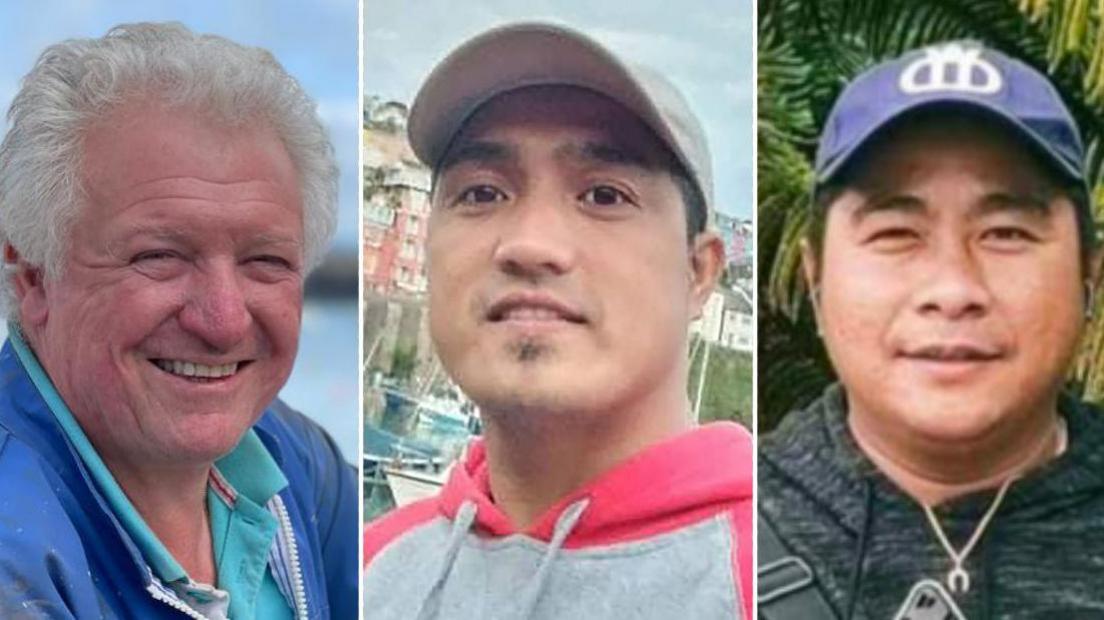
L'Ecume II's skipper Michael Michieli and crew members Larry Simyunn and Jervis Baligat were killed during the collision on 8 December 2022
He said maritime rules required both to be on the bridge during the night to keep an effective lookout in darkness and avoid a collision.
He told the jury these were not followed by able seaman Mr Sevash-Zade and second officer Mr Carr at various points.
This included Mr Sevash-Zade being released for breakfast and Mr Carr doing paperwork while on the bridge by himself.
Mr Maletroit told the court: "On the bridge of Commodore Goodwill, even the basics fell by the wayside and safety was not treated as the paramount consideration."
The prosecutor added "an avoidable collision became an unavoidable one" and the consequences of the co-defendant's actions proved fatal, despite last minute adjustments of course in an effort to prevent the crash.
"These were last moment panicked reactions to a danger that caught them by surprise that could and should have been addressed way before that," Mr Maletroit said.
'No dedicated lookout'
Discussing the individual actions of Mr Carr, who was the officer of the watch at the time of the incident, Mr Maletroit said the defendant was an experienced seaman who had shown a "lax" attitude to being in control of the Goodwill's bridge.
He said Mr Carr appeared to consider doing pre-arrival paperwork more important than maintaining a proper lookout during the night.
Mr Maletroit told the court it was "only a matter of time" before Mr Carr was involved in a collision.
"The point is, under Mr Carr's watch, there were periods where a large freight ship was sailing at full speed at night with no one keeping a dedicated lookout," Mr Maletroit added.
"That is an incredibly frightening thought."
Mr Maletroit said a number of phone calls Mr Carr made in the minutes before the collision had also been a distraction and took his attention away from the incident about to unfold.
"As a result of this distraction, Mr Carr lost all sense of situational awareness," Mr Maletroit said.
He added Mr Carr's actions such as sounding the ship's horn seconds before the collision and trying to alter the Goodwill's path while in autopilot were done too late.
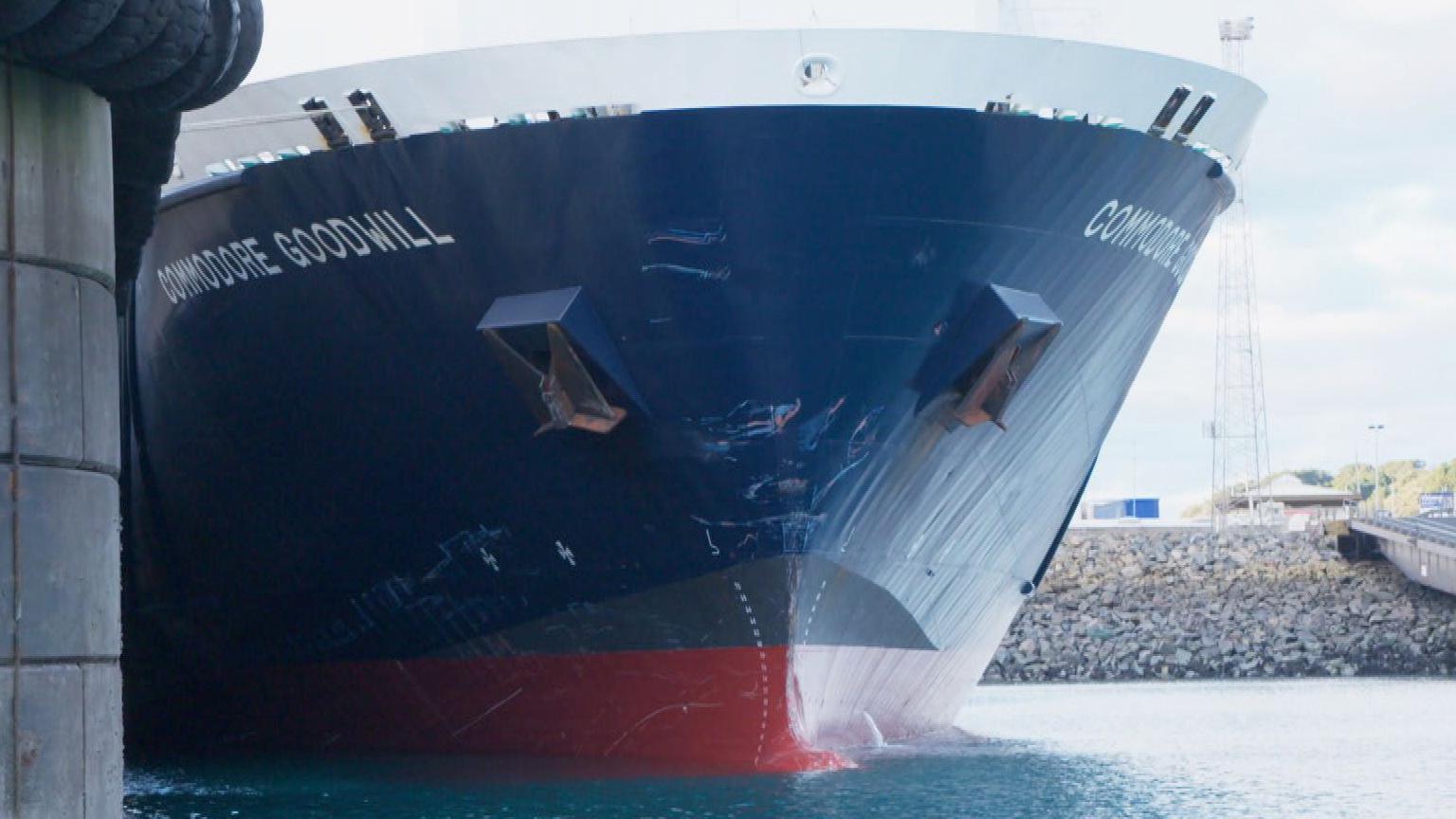
Crown advocate Matthew Maletroit said the actions of the co-defendants turned an avoidable collision into an unavoidable one
Speaking about Mr Savesh-Zade, Mr Maletroit accused the Ukrainian national of "trying to pull the wool" over the jury's eyes by claiming he was just following orders from his superior officer.
Mr Maletroit said Mr Sevash-Zade was an experienced seaman whose qualifications surpassed what was required for a lookout.
He added the defendant leaving the bridge shortly before the collision showed "really bad" practice on his part.
Mr Maletroit told the jury Mr Sevash-Zade had been a member of a dysfunctional bridge team and did not do enough to raise concerns despite knowing a collision was possible.
"As far as he was concerned, he was blameless because he was ordered to do other tasks," Mr Maletroit said.
"Mr Selash-Zade is not a passive machine to be switched on and off when the officer of the watch feels like it."
Before Mr Maletroit's summing up, judge Commissioner Sir John Saunders gave legal directions to the jury.
Sir John told jurors to consider the case of each defendant separately as the factual allegations made against them and the evidence in their cases were different.
His directions to the jury said the verdicts could be different for each of the co-defendants.
Closing statements from the co-defendants' legal teams are due to begin on Monday.
Follow BBC Jersey on X, external and Facebook, external. Send your story ideas to channel.islands@bbc.co.uk, external.
- Published18 September
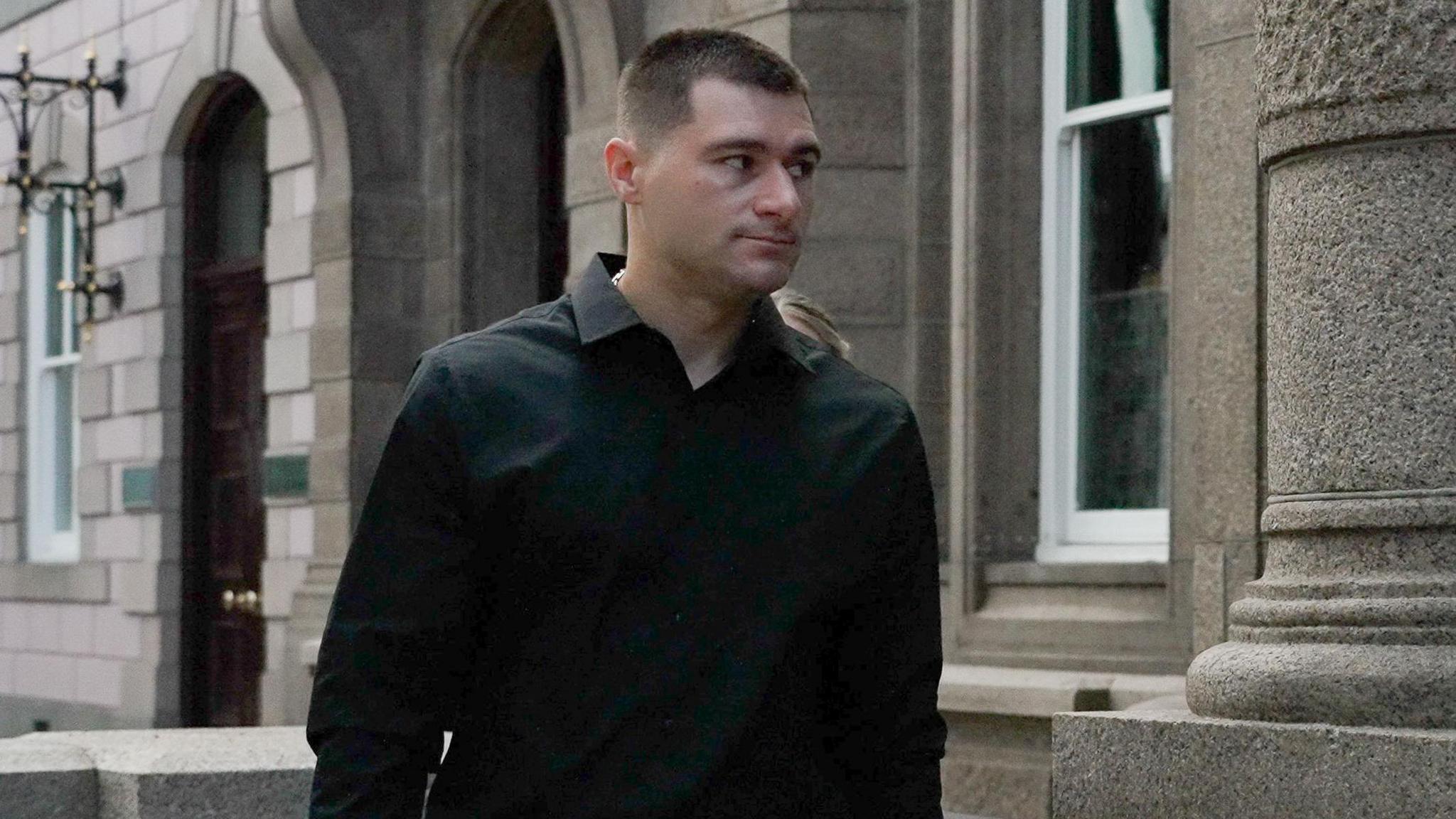
- Published17 September
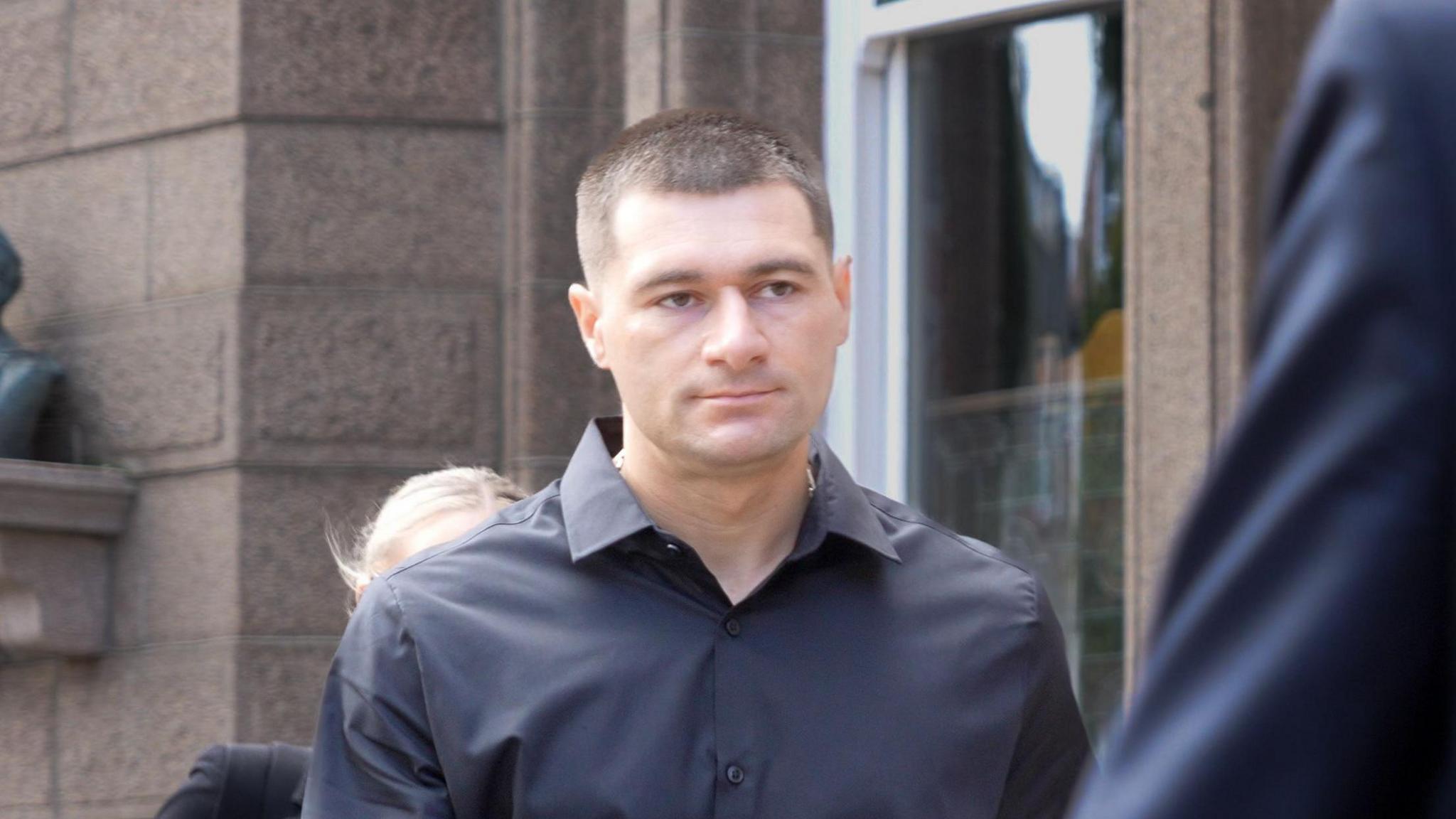
- Published16 September
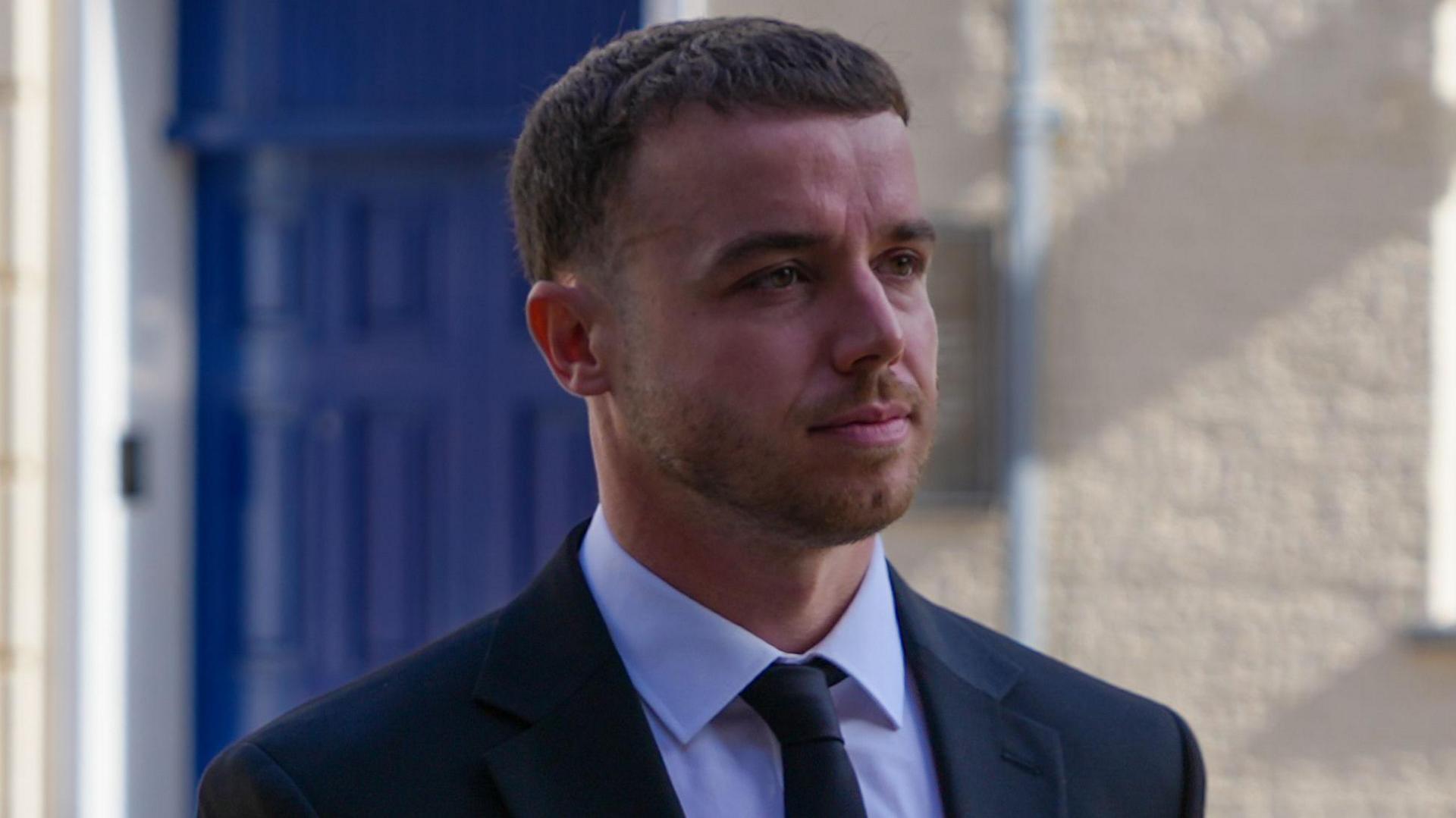
- Published15 September
